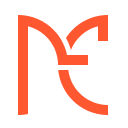Week 57
Dear Reader,
As this year is coming to a close, wanted to review the best links we have featured, my favorite books and a couple of other callouts. Don't forget to forward to someone else who may enjoy some of these links.
For timely recommendations scroll down to the end of the newsletter.
What is happening now?
Markets: The risk of a recession has now somewhat reduced. Debt levels are still extremely high, but debt obligations are largely corporate and low due to low interest rates. Reweigh accordingly but carefully.
Tech: The influx of low-interest capital in tech is ever tilting the narrative towards investors rather than builders. We have guides on how to become a scout, how to become an angel, how to become a VC, new funds propping up. The contrarian thing today is just to focus on building something, not just something that people need, but also something that could drive productivity up. However, there is room for investors who embrace fairer forms of compensation (e.g., carry based on returns rather than break-even), are able to prove their IRR transparently and invest in companies that deserve to be funded where nobody else would have (fighting to fund companies is a zero-sum game, if you're an incredible operator/adviser, but struggle to find companies that other people overlook, you should definitely be building an amazing company instead). Another welcome change is that VCs have stopped advocating venture as a solution for every business. This has allowed people like Andrew Wilkinson to pave new paths for businesses. It's a much welcome change in an environment where public company CEOs are some of the most hated people out there.
West: I think Western governments are going through a crisis of the kind that is predictive of a long-term civilizational collapse. The rule of law doesn't apply to billionaires any more, voters are easily manipulated, positive sum games are ignored at every level in favour of zero-sum games. For the first time in a long time, I'm proud of the efforts happening home in Latvia to attack corruption and I can foresee a lot of growth coming from the Baltics in the decades ahead as a result of this transition. At the same time as major western economies are becoming more corrupt in fairly opaque and sophisticated ways.
Top links of 2019
1. Michael Nielsen on how to get much better at anything.
2. Riva Tez on why we should build things (before Obama said it). "Noone else is starting, we should all be starting."
3. Linear App, the best product management tool out there.
4. Realistic personal finance hacks from Collab fund.
5. @RudyHavenstein. Yes - the account, satire on current events and investing at its finest.
6. Sam Altman's predictions for 3 most important technological developments by 2025.
7. Four key product principles from WeChat's creator Allen Zhang (published by a16z).
8. Andy Sparks collects list of essential books on management.
9. Ray Dalio on why capitalism needs to be reformed.
10. Morgan Housel - the advantage of being a little under-employed.
Honorable mentions
1. Fundamentals of product market fit by Holloway guides.
2. My own high ground principle description.
3. Sequoia: 10 steps to a friction free app.
4. The Kanye story.
Favorite books I read in 2019 (I don't give a rat's ass about books published in 2019 yet, see Lindy Effect)
1. 7 Powers the fundamentals of business strategy. This book is a work of art and business masterpiece. Throw out your HBR case studies and read about the statics and dynamics of strategy from a true master (who was also proven his theories by using them to value invest). If you believe, like me, that business is driven by mathematics as much as anything, this is a book you need to read.
2. Creative selection: Inside Apple's design process during the golden era of Steve Jobs and Jony Ive: the genius behind Apple's greatest products. These two books are in conjunction a two book volume on how Apple does design. The first book explains software design and the second book hardware design. I expected both to be full of cliches and known stories, but they offered instead an in-depth look at how Apple works. I've learned a lot that I now apply in my own software practice.
3. The Singapore Story: Memoirs of Lee Kuan Yew. My favorite book on government. There are few success stories like Singapore's rise and this book combines an exciting historical account with many lessons about governance and leadership.
Honorable mentions
Mastering the market cycle showed to me why adjusting your investments to market characteristics is an entirely rational complement to diversification.
The defining decade, it's a little too late for me to reflect on my twenties but reading this book was wonderfully therapeutic and it has some useful life frameworks.
Company of one: why staying small is the next big thing for business covers various techniques for running bootstrapped (or highly profitable) businesses and getting more leverage from fewer employees.
Forward the Foundation was the final book for me to read in the Foundation series (one of my favorite all-time science fiction series). This book added some much needed plot closure while providing deeper nostalgia about Asimov's late life reflections (it was written shortly before his death). I have also started reading the Robot stories and am once again impressed by how little we have invented that Asimov didn't already envision in his expanded Foundation universe.
Links
Rand Fishkin on why most marketing is wasted chasing the wrong customer with the wrong purchase intent.
Collection of useful syllabi.
The Holloway Guide to using Twitter.
How to break into VC today.
How to break into Angel Investing today.
Baseline benchmarks for strength.
Crypto theses for 2020.
